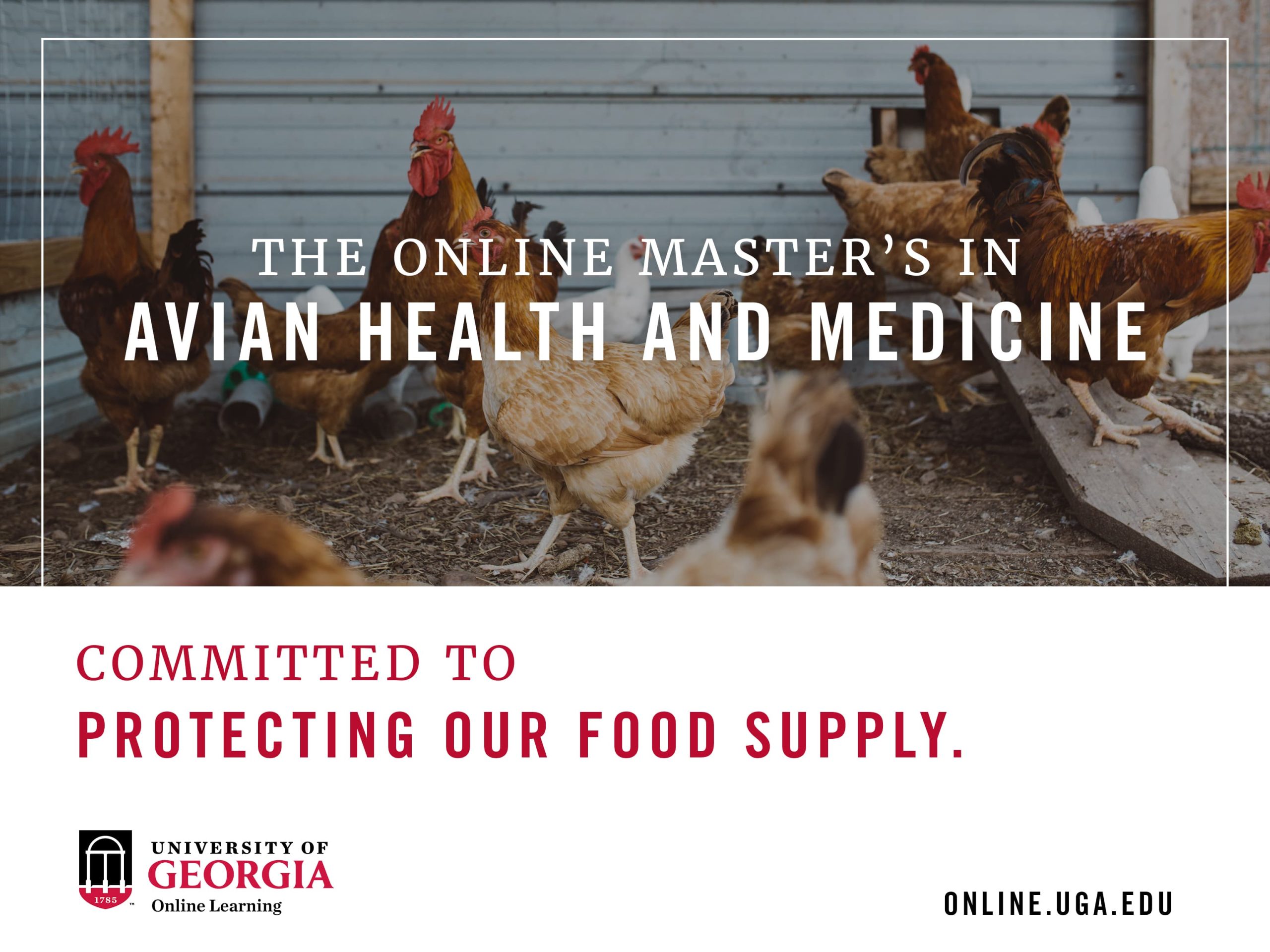Healthy Chickens for a Healthy Economy: Maximizing bird health to improve the poultry industry
Healthy Chickens for a Healthy Economy: Maximizing bird health to improve the poultry industry
In Georgia, poultry farming isn’t just an industry.
It’s an integral part of our state’s economy, bringing in over $3.8 billion annually.
As the No. 1 poultry-producing state, our researchers are committed to being the nation’s leaders in poultry research and innovation. No one knows this better than Todd Applegate, head of the University of Georgia’s Department of Poultry Science.
“In Georgia, an estimated 138,000 jobs are linked directly or indirectly to poultry production,” he says. “In short, ensuring the health and well-being of our birds in Georgia is critical to the economy of our state.”
Applegate joined Georgia’s faculty in 2016, the same year Congress committed $114 million to update USDA/Agricultural Research Service’s National Poultry Research Center in Athens, solidifying the state’s position as the center of the poultry industry.
A critical area of need for research centers on the health of chickens, specifically addressing new guidance from the FDA in 2017 banning the use of growth-promoting antibiotics. While antibiotics are still allowed for disease prevention, consumers are demanding higher scrutiny on how and when the drugs are being used.
This presents unique challenges in keeping chickens healthy. Applegate and the Georgia poultry team are assessing various methods of disease prevention and containment, looking at, among other things, diet. And it helps that Georgia is already known for its research on the intestinal health of birds.
“We’re focused on what we can add to the diet to maximize gut health in chickens, looking at a variety of compounds ranging from probiotics to prebiotics, to organic acids, to extracts from different spices and herbs,” he says.
Applegate and Georgia’s researchers are also considering ways they can improve the rearing processes and how they can affect the spread of disease.
“Another focus of our faculty’s research is how the entirety of gut bacteria affects salmonella and how different compounds we’re testing could reduce the occurrence,” says Applegate. “With our research, we’re constantly adding to our knowledge base, but unfortunately, there is no magic bullet.”
What Applegate and the poultry team have discovered is that a multi-pronged approach is essential in maintaining bird health, from dietary health to farm management. And that collaboration between researchers, veterinarians and other scientists will be the key that gets them closer to determining the best course of action to keep chickens and, by default, the economy healthy.

As additional consumer interest in chicken health continues to grow, Georgia researchers are also developing new biosecurity innovations, focusing on creating technologies to improve the energy efficiency of poultry housing and providing comfort throughout the life cycle of the bird. All of this has implications for improving Georgia’s agriculture economy, 40 percent of which comes from the broiler chicken industry.
“There’s a much bigger need for multidisciplinary solutions to technical problems, which are getting more complicated to solve,” says Applegate. “There’s no other place in the world that has nearly 70 scientists focusing on poultry. I’m proud of the range of things that we do in an industry that’s constantly evolving.”
For more information about the University of Georgia’s online Master of Avian Health and Medicine degree program and to learn how you can make a difference in this industry, visit our degree homepage.
This article, authored by Kelly Engelbrecht from the College of Agricultural and Environmental Sciences, originally appeared in UGA Great Commitments.
